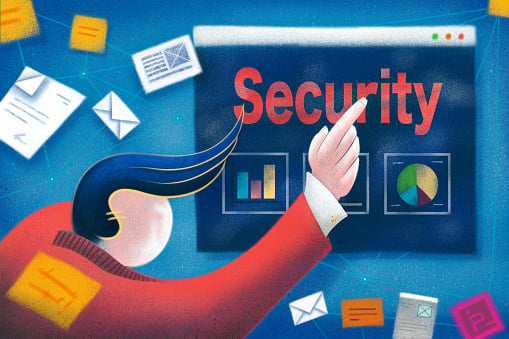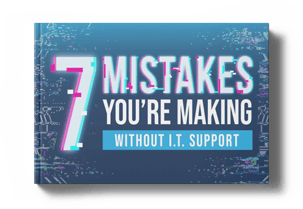Cybersecurity
Safeguard your organization against digital threats with our specialized cybersecurity IT consulting services in San Francisco and Los Angeles. We...
Because there are as yet no standardized policies on cybersecurity in the business world, most small-to-medium-sized outfits are virtually on their own when it comes to creating cyber defense protocols and controls. Specifically, the SMBs who have no CTO, CIO, or vCIO to speak of, and who outsource only a minimal amount of IT support from “specialists” who perhaps only cover certain aspects of IT.

For those companies who either cannot afford or refuse to outsource full-time IT services a.k.a. vCIO, here are seven steps you can take to get yourself closer to the optimum amount of cybersecurity:
To wit: cybersecurity leader Symantec said in a recent report that in 2015, 43% of data breaches targeted companies with less than 250 employees. This figure has been steadily rising over the last five years, up from 18% in 2011, and will likely continue to rise in the coming years.
Let the IT Experts Handle Your Cyber Safety and Security
If you need further advice about cyber safety awareness and security, {company} is a proven leader in providing IT consulting and cybersecurity in {city}. Contact one of our expert IT staff at {phone} or send us an email at {email} today, and we can help you with all of your cyber safety, defense, and security questions or needs.

Safeguard your organization against digital threats with our specialized cybersecurity IT consulting services in San Francisco and Los Angeles. We...
Microsoft Certified Partners are independent companies that can provide you with a high level of technical expertise, strategic thinking, and...
600,000 miles of fiber optic and HFC cable network, Privately owned, enhanced network. A vast and constantly growing footprint that spans 29 regional...

On Time Tech is an IT Support and Computer Services company serving California. We provide services to the areas in and around We know businesses like yours need technology support in order to run highly-effective organizations. Leverage pro-growth technology services for your company now.
San Francisco:
182 Howard St.
Suite 108
San Francisco, CA 94105
Los Angeles:
8350 Rex Road
Pico Rivera, CA 90660
Business Hours:
M-F: 8AM-9PM
© 2024 On Time Tech